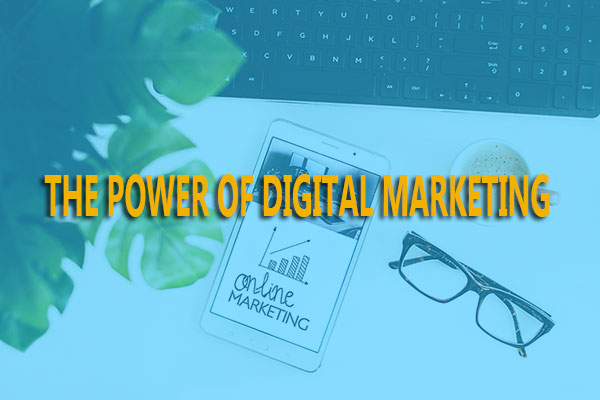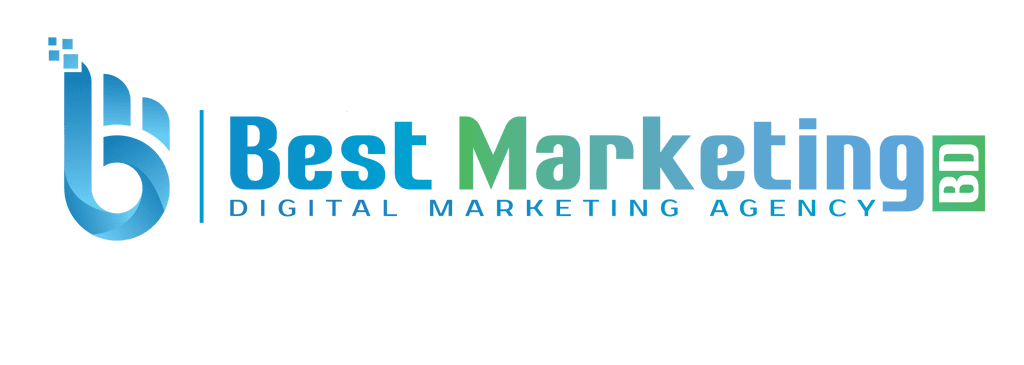In today’s fast-paced and highly competitive business landscape, the need for effective digital marketing has become paramount. As more businesses realize the immense potential of online platforms, the demand for a reliable and innovative digital marketing agency has soared. In Bangladesh, one agency has consistently proven its expertise and prowess in this domain Digital Marketing Agency in Bangladesh.

What is a digital marketing agency?
A digital marketing agency is a specialized company that offers a wide range of services aimed at promoting businesses, products, and services through various digital channels. These channels include search engines, social media platforms, email marketing, content marketing, and more. A reputable agency like Digital Marketing Agency in Bangladesh utilizes cutting-edge strategies and technologies to help businesses maximize their online presence, increase brand awareness, and drive qualified leads.
Why is digital marketing important?
Digital marketing has revolutionized the way businesses connect with their target audience. It provides a cost-effective and measurable approach to reach potential customers, build brand credibility, and drive conversions. By leveraging data analytics, digital marketing enables businesses to tailor their marketing campaigns, deliver personalized experiences, and optimize their return on investment (ROI). As the internet continues to dominate our lives, a strong digital marketing strategy has become indispensable for businesses in Bangladesh and beyond.
What services does a Best digital marketing agency offer?
A leading digital marketing agency like [Digital Marketing Agency in Bangladesh] offers a comprehensive suite of services to cater to the diverse needs of businesses. These services typically include:
1. Search Engine Optimization (SEO): Enhancing website visibility and organic search rankings to drive targeted traffic.
Search Engine Optimization (SEO) is the practice of improving a website’s visibility and ranking in search engine results pages (SERPs) organically. It involves optimizing various elements of a website, such as its content, structure, and backlink profile, to make it more appealing to search engines like Google, Bing, or Yahoo.
The primary goal of SEO is to drive organic (non-paid) traffic to a website, resulting in increased visibility, higher click-through rates, and ultimately, more conversions and revenue. SEO encompasses both on-page and off-page optimization techniques.
On-page optimization focuses on optimizing individual web pages to make them more relevant and valuable to search engine algorithms. This includes optimizing the website’s content by incorporating relevant keywords, optimizing meta tags, improving page load speed, and enhancing user experience.
Off-page optimization, on the other hand, involves building high-quality backlinks to the website from reputable sources. Backlinks act as “votes of confidence” for search engines, indicating the website’s credibility and authority.
SEO is a constantly evolving field due to search engines’ algorithm updates and changing user behaviors. Staying up-to-date with the latest SEO trends and best practices is essential for achieving long-term success. By implementing effective SEO strategies, businesses can improve their online presence, attract more targeted traffic, and gain a competitive edge in the digital landscape.
2. Pay-Per-Click (PPC) Advertising: Creating and managing effective paid advertising campaigns to generate immediate results.
Pay-Per-Click (PPC) is an online advertising model in which advertisers pay a fee each time their ad is clicked. It is a popular and effective method of driving targeted traffic to websites and increasing visibility in search engine results. In a PPC campaign, advertisers bid on specific keywords relevant to their business, and their ads are displayed alongside search results or on relevant websites. The position of the ad is determined by factors like bid amount, ad quality, and relevance to the user’s search query. PPC offers a cost-effective way to reach a specific audience, as advertisers only pay when their ad is clicked, making it easy to track and measure the return on investment (ROI). It is a highly customizable form of advertising that allows advertisers to set budgets, target specific demographics, and adjust campaigns in real-time. PPC platforms like Google Ads and Bing Ads provide tools and analytics to monitor performance, optimize campaigns, and achieve marketing objectives.
3. Social Media Marketing (SMM): Building and nurturing a strong social media presence to engage with the target audience.
Social Media Marketing (SMM) refers to the use of social media platforms and websites to promote products, services, or brands. It involves creating and sharing engaging content, participating in conversations, and running targeted advertising campaigns to reach and connect with a specific audience. SMM leverages the popularity and widespread use of platforms such as Facebook, Instagram, Twitter, LinkedIn, and YouTube to build brand awareness, drive website traffic, and engage with customers.
In social media marketing, businesses or individuals create profiles or pages on relevant social media platforms and use them to share content that is valuable, entertaining, or informative to their target audience. This content can include text, images, videos, or a combination of different media formats. The goal is to attract and engage followers, encourage them to share the content, and foster a sense of community around the brand.
SMM also involves interacting with followers and responding to their comments, questions, and concerns in a timely and authentic manner. This helps to build trust, establish a positive brand image, and create loyal customer relationships.
Additionally, social media advertising is a key component of SMM. It allows businesses to target specific demographics, interests, or behaviors with paid advertisements. These ads can appear within users’ news feeds, as sponsored content, or as display ads on social media platforms. The advantage of social media advertising is its ability to reach a highly targeted audience, track ad performance, and adjust campaigns in real-time to maximize results.
Overall, social media marketing provides a powerful platform for businesses and individuals to connect with their target audience, build brand awareness, and drive meaningful engagement and conversions.
4. Content Marketing: Creating valuable and relevant content to attract, educate, and convert prospects into customers.
Content Marketing is a strategic marketing approach that focuses on creating and distributing valuable, relevant, and consistent content to attract and retain a clearly defined audience. It involves the creation and sharing of various forms of content, such as blog posts, articles, videos, infographics, and podcasts, with the goal of providing value to the audience and building trust and credibility.
The key principle of content marketing is to deliver information or entertainment that is useful, informative, or engaging to the target audience, rather than directly promoting a product or service. By consistently producing high-quality content that addresses the needs, interests, and pain points of the audience, businesses aim to establish themselves as a trusted source of information and expertise in their industry.
Content marketing aims to attract and engage the target audience by providing content that educates, entertains, inspires, or solves problems. It is designed to create a positive brand perception, enhance brand awareness, and foster customer loyalty. Content can be distributed through various channels, such as a company blog, social media platforms, email newsletters, or industry publications.
An effective content marketing strategy involves conducting thorough audience research to understand their preferences, needs, and behaviors. By aligning the content with the target audience’s interests and aspirations, businesses can attract and engage a relevant and receptive audience.
Content marketing also plays a crucial role in search engine optimization (SEO), as high-quality and relevant content can improve a website’s visibility and ranking in search engine results. By incorporating relevant keywords and optimizing content for search engines, businesses can attract organic traffic and increase their online presence.
Overall, content marketing is a powerful tool for building brand authority, driving website traffic, nurturing customer relationships, and ultimately, achieving business goals. It focuses on delivering value to the audience and establishing long-term connections, which can lead to increased brand loyalty and customer conversions.
5. Email Marketing: Developing and implementing targeted email campaigns to nurture leads and drive customer loyalty.
Email Marketing is a digital marketing strategy that involves sending targeted messages and promotional content directly to a group of individuals via email. It is a highly effective and cost-efficient method for businesses to communicate with their audience, build relationships, and drive engagement and conversions.
Email marketing campaigns are typically created to deliver various types of content, including newsletters, product updates, exclusive offers, event invitations, or personalized messages. These emails are sent to individuals who have willingly subscribed to receive communications from the business or have shown interest in their products or services.
The key to successful email marketing lies in delivering relevant and valuable content to the recipients. By understanding the interests and preferences of the audience, businesses can tailor their emails to provide information or offers that are most likely to resonate with them. Personalization, segmentation, and automation are commonly used techniques to enhance the effectiveness of email marketing campaigns.
Email marketing allows businesses to directly reach their target audience, enabling them to drive website traffic, generate leads, increase sales, and promote brand loyalty. With careful planning and strategic execution, businesses can optimize their email campaigns for better open rates, click-through rates, and conversions.
Email marketing also provides valuable insights and analytics that help businesses measure the performance of their campaigns. By tracking metrics like open rates, click-through rates, and conversions, businesses can refine their email strategies and improve their marketing efforts over time.
It’s important to note that effective email marketing requires compliance with relevant laws and regulations, such as obtaining proper consent from recipients and providing a clear option to unsubscribe from future emails.
Overall, email marketing remains a powerful and versatile marketing tool, allowing businesses to engage directly with their audience, build brand awareness, and drive meaningful actions that contribute to their marketing objectives.
6. Conversion Rate Optimization (CRO): Analyzing and optimizing user experience to maximize conversions on websites and landing pages.
7. Online Reputation Management (ORM): Monitoring and managing brand reputation across various online platforms.
8. Analytics and Reporting: Utilizing data-driven insights to measure performance, identify opportunities, and refine strategies.
In this article, we refer to the Digital Marketing Agency in Bangladesh as the leading agency. For more in-depth information on specific digital marketing topics, you can refer to the following articles:
